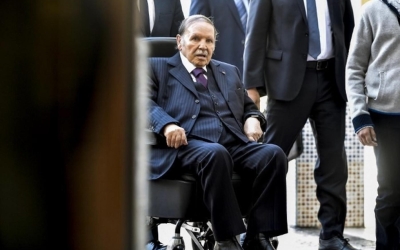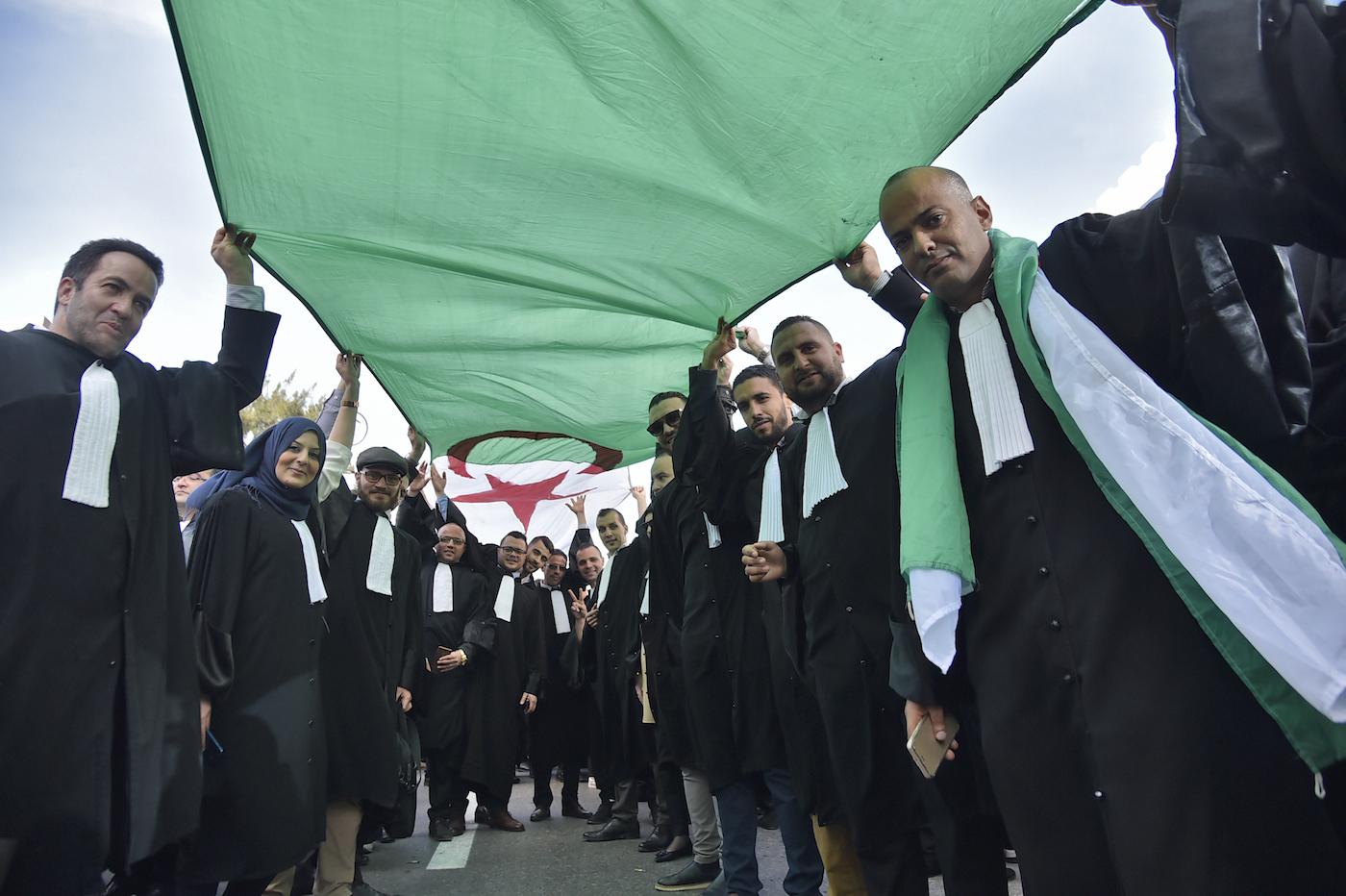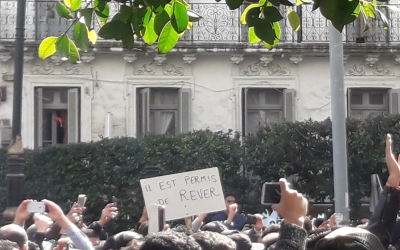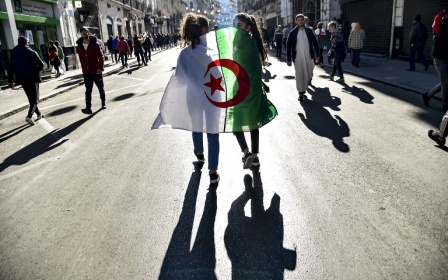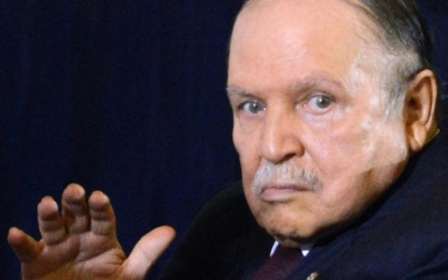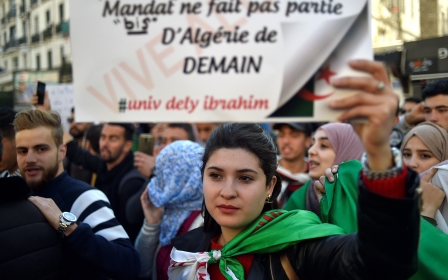Algeria: Using Article 102 to remove Bouteflika would be unconstitutional
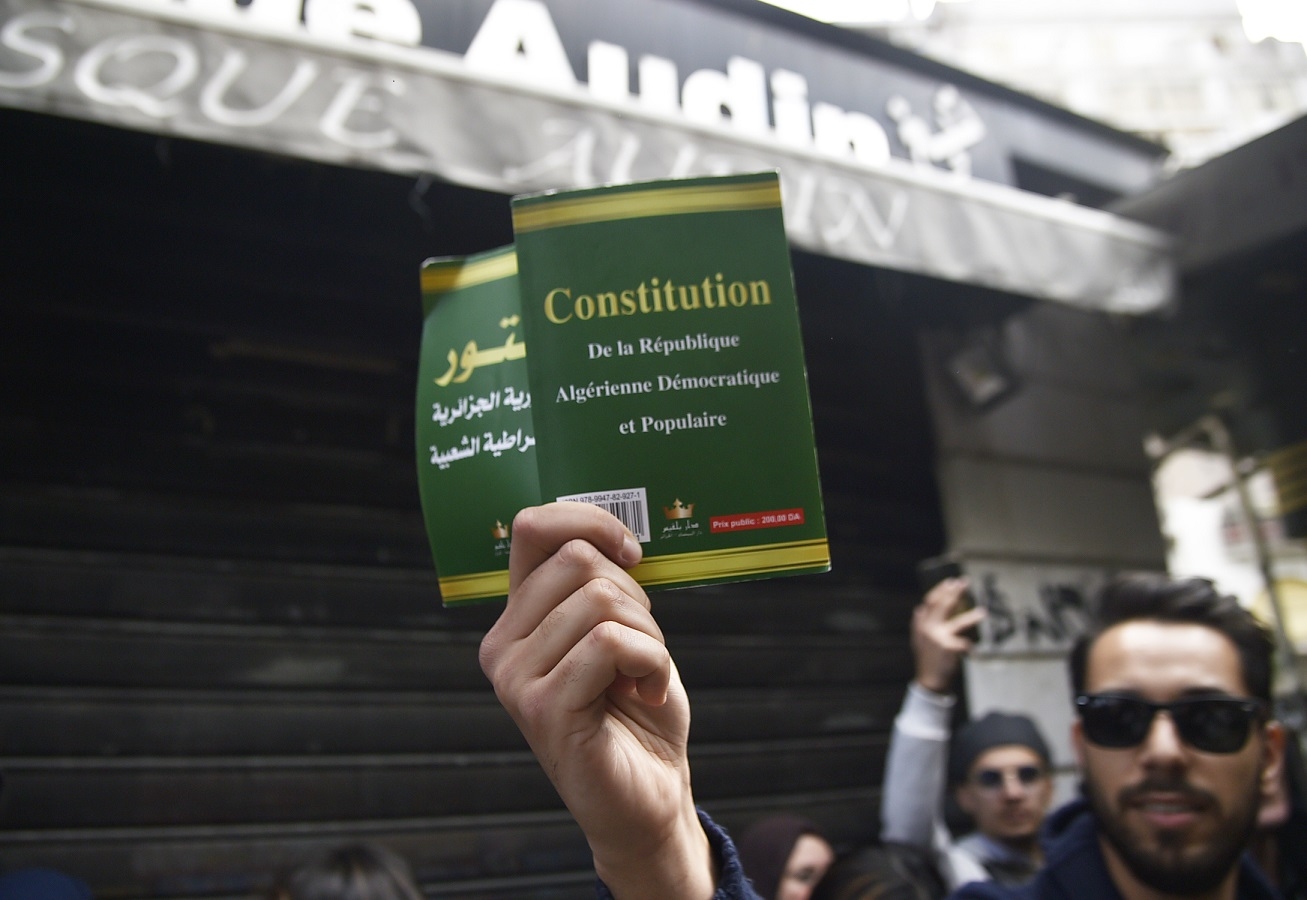
Calls for the application of Article 102 of the Algerian Constitution have been ongoing for several years, in an effort to oust President Abdelaziz Bouteflika on health grounds.
Under Article 102, the Constitutional Council would meet to determine whether the president was fit to continue exercising his duties. After verifying the severity of his condition, the council would propose that parliament declare him unfit to rule.
If parliament found that the president was unable to rule, it would have to designate the head of the Council of the Nation (the upper house of Algeria’s Parliament) as interim president for a maximum period of 45 days.
For the country’s rulers, there has never been any prospect of applying it - but this week, army chief Ahmed Gaid Salah said this constitutional provision must be enforced. This would, however, be a constitutional fraud and a dangerous path that would undermine national cohesion.
Flagrant violation
New MEE newsletter: Jerusalem Dispatch
Sign up to get the latest insights and analysis on Israel-Palestine, alongside Turkey Unpacked and other MEE newsletters
On 11 March, the regime opted to postpone the presidential election and extend Bouteflika’s fourth term until the end of a transition process overseen by the government. While these measures were in clear violation of the constitution, neither the army chief of staff, nor the parliament, nor the Constitutional Council expressed concern.
Yet, beyond their unconstitutionality, these measures were a real slap in the face to Algerians, who vigorously rejected them as they had rejected an earlier offer, when Bouteflika was still asking for a fifth term to initiate regime change.
By refusing to discharge Bouteflika on health grounds several years ago, then stubbornly presenting him as a candidate for a fifth term, and then extending his fourth term, the regime created an institutional crisis that has now been combined with a deep constitutional crisis.
Gaid Salah claims that the situation can be addressed by using Article 102, apparently believing that he can convince the Algerian people that this is the constitutional path to overcome the current deadlock.
Political chaos
It may seem paradoxical to state that the application of Article 102 of the Constitution is unconstitutional, yet it is. The interpretation of a constitutional provision cannot be made in a vacuum; it must take into account the letter and spirit of the Constitution, but also the political context.
Even though the president has been seriously ill for a long time, all state institutions allowed him to infringe the Constitution on 11 March. They supported him in this process and did not react when senior dignitaries declared that power was in the hands of unconstitutional forces.
The regime must now sacrifice Bouteflika in hopes of organising, within five months, a presidential election that will not bring any significant changes
It is therefore clear that respect for the Constitution is not the purpose of the calls for the implementation of Article 102. Gaid Salah’s statement can only be interpreted as an alternative to the failure of the previous attempts to maintain Bouteflika’s power. This failure is due to the determination of Algerians to remove Bouteflika and the regime itself.
The regime has realised the obvious: Bouteflika has not succeeded in forming a new government or the announced “inclusive national conference”. The regime must now sacrifice Bouteflika in hopes of organising, within five months, a presidential election that will not bring any significant changes - a controlled election.
Misuse of procedure
The first condition for the application of Article 102 is the total inability of the president to perform his duties due to a serious and lasting illness.
Article 102 of the Algerian constitution
+ Show - HideArticle 102 is a clause in the Algerian constitution that allows for the removal of the president if they are deemed unfit to rule because of medical reasons.
The article has to be unanimously invoked by 12 members of the Constitutional Council.
If the Constitutional Council finds a reason to impeach the president, then parliament will declare the president incapacitated by 2/3 majority. Then the head of the upper house of the Algerian parliament will become interim head of state for 45 days.
If the reason for the president's impeachment continues after 45 days, then the head of Senate continues ruling Algeria for another 90 days, after which presidential elections are organised.
However, if the Constitutional Council has not seen fit to meet in recent weeks to verify the reality of this impediment, what change in the president's health would justify the enforcement of Article 102 today, a month before the end of his fourth term? If Bouteflika's current state of health allowed him to rule in the past, why can he no longer do so today?
The Constitutional Council has had many opportunities to assess the president’s state of health and has not done so. If it now responds to an order from the army chief of staff - who does not have this type of authority - this would constitute a misuse of procedure.
Fourth term extension?
Bouteflika's fourth, and now final, term ends on 28 April - and the presidential election initially scheduled for 18 April will not be held, because of the regime’s unconstitutional decision. Algeria’s constitutional deadlock will not be solved through a sleight of hand; the whole manoeuvre violates the Constitution.
Article 102 provides for an initial interim period of 45 days, at the end of which the president would officially resign if his impediment persists. Of course, his condition will remain, but 45 days is a longer period than the remaining days of his fourth term.
If the perpetrators of this manoeuvre want to give it the appearance of compliance with the Constitution, the interim period should be stopped at the end of Bouteflika’s presidential term. But it will not be possible to elect a new president in a month or in 45 days. The regime intends to buy time.
As the impediment will not cease at the end of the first interim period, the power vacuum would launch a new 90-day interim period, during which time a presidential election would be held. In this way, the regime could artificially extend Bouteflika’s fourth term via Abdelkader Bensalah, the president of the Council of the Nation.
A dangerous tactic
Millions of Algerians have expressed their dissatisfaction with Bouteflika’s continued rule, and with the regime as a whole. Satisfying their demands does not require Article 102, which is actually intended to circumvent the protests.
Bouteflika’s fourth term ends in a month and cannot be extended by a simple presidential decree. Article 102 aims to regenerate a regime that has been strongly rejected, in its entirety, by Algerians.
Such an outcome would lead either to resignation or an explosion of rage with catastrophic consequences
In five months, the political and legal conditions for a free election will still not be met, the oligarchs will continue to enjoy public money, the regime will maintain its authoritarianism, and the predatory economy and its henchmen will be in key positions to stage electoral fraud.
By agreeing to the enforcement of Article 102, we accept that the popular mobilisation that refused to extend Bouteflika’s fourth term has ultimately been left with an extended fourth term - without Bouteflika, and with the regime unchanged.
To accept this is to spread the idea that peaceful mobilisation is useless. Such an outcome would lead either to resignation or an explosion of rage with catastrophic consequences for civil peace. That is why the mass mobilisation must last and oppose the imposition of Article 102.
The views expressed in this article belong to the author and do not necessarily reflect the editorial policy of Middle East Eye.
This article originally appeared in the MEE French edition. It was translated by Reda Zaireg.
Middle East Eye delivers independent and unrivalled coverage and analysis of the Middle East, North Africa and beyond. To learn more about republishing this content and the associated fees, please fill out this form. More about MEE can be found here.



